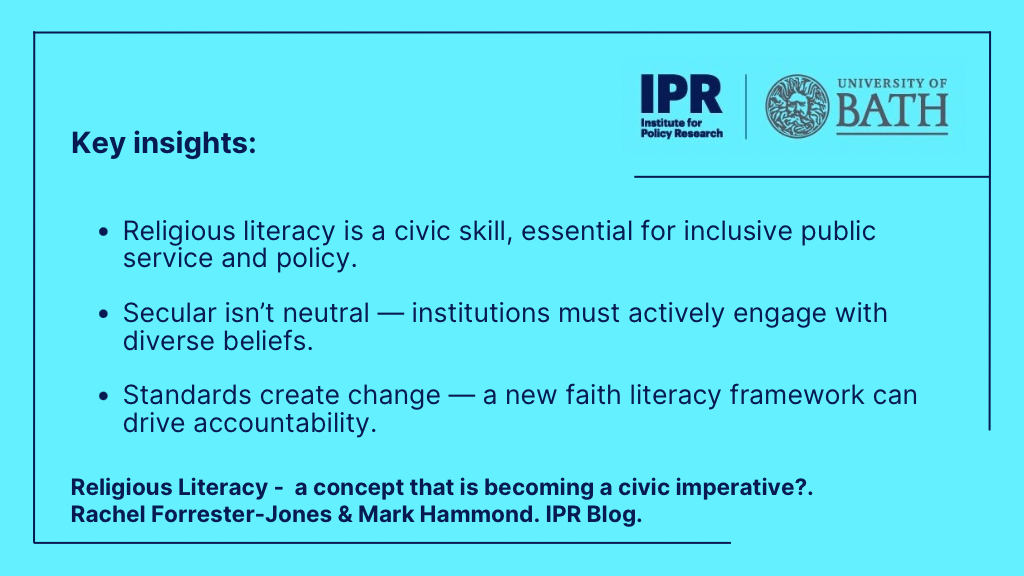As part of the dynamic partnership between the School of Health Studies, Western University, and the University of Bath, UK we are thrilled to present a series of blogs. Other activities in connection with the partnership include student placements, lecture exchanges. In addition, please join us for this exciting Seminar on Age-Friendly Communities, focusing on age-friendly communities in London, Canada, and Bath, UK. This engaging event will feature insightful discussions from our colleagues: Afshin Vafaei (School of Health Studies), Carrie Hand (School of Occupational Therapy), and Michelle Dellamora (City of London), along with distinguished panelists from Bath.
🗓 Date: Thursday, May 22nd
🕥 Time: 10:30 - 11:45 AM EDT
Don't miss out on this opportunity to learn and connect. Reserve your spot HERE for link details or join in person at Bath. The School of Health Studies will be livestreaming the event with panel participants from the Health Sciences Building, Research Commons on the 3rd floor. For any questions, please reach out to Anita Kothari at akothari@uwo.ca.
We look forward to seeing you there and if you have any further ideas for the partnership please contact Anita Kothari akothari@uwo.ca or Rachel Forrester-Jones rforre@uwo.ca
Mark Hammond is a Visiting Fellow at Bath. He was previously Chief Executive of the Equality and Human Rights Commission, a visiting professor at Canterbury Christ Church University and a non-executive Board Member at the Crown Prosecution Service. He has been a civil servant and diplomat and a local government Chief Executive and served in two NHS boards. He is currently a Partner in the RBLP.
Dr. Rachel Forrester-Jones is Professor and Director of the School of Health Studies at Western University, Ontario, Canada. Her research scans the life course of people with intellectual disabilities and mental health issues, from early transitions to death and bereavement. Her research has been conducted across Europe, UK ad Brazil and more recently in the Middle East and North Africa. As a qualified Barrister, she is also interested in legal issues in relation to vulnerable adults. She is also an Honorary Professor in the Department of Social and Policy Sciences and the Centre for the Analysis of Sociology and Social Policy at the University of Bath.
The concept of religious literacy - or the knowledge and skills that help us understand and engage with religious, spiritual, and non-religious worldviews - has been gaining considerable interest recently. It is argued that such literacy is a civic imperative for public services working within diverse communities. For example, Hannan and colleagues (2020) argue that religious literacy should be the focus of religious education curriculums in schools following the 2018 Final Report from the Commission on Religious Education’s concern about the lack of agreement over the purpose of religious education.
In an independent review in 2023 Does ‘government do God’? concerning how government engages with faith, the previous Government’s independent faith adviser, Colin Bloom reported structural and systemic issues with the understanding of faiths across the public sector and that this was manifested in policies and practices. For example, widespread ignorance of different faiths by public sector workers was found, leading to blunders such as police officers confusing Sikhs with Muslims. Recent cases such as when a hospital shaved off the beard of a Sikh man who could not speak to prevent it and when Downing Street served meat and alcohol at is annual Diwali celebration have only underlined the problem. To address these problems, Bloom recommended that:
The Government should take steps to ensure that everyone on the public payroll including civil servants in Whitehall and local councils, colleges and universities, and police, prison and probation officers are provided with consistent, quality faith literacy training. (Bloom, 2023 p19)
Although this recommendation has yet to be endorsed by the current government (in part perhaps because it would mean training some 6 million people) the premise that the public sector needs to better understand all forms of religion, faith, and belief remains unchallenged. This may in part be due to the increased general interest in spirituality. Although the global North is perceived by many to be culturally secular, the UK is far from becoming less religious. The England and Wales 2021 Census indicated that even though the number of people identifying as “Christian” is decreasing - with an increased proportion of people self-identifying as having ‘no religion’ - there exists an overall increase in religious membership of other religions including “Muslim” and “Hindu” faiths (ONS, 2021). A recent poll has also shown a significant increase in regular church attendance among 18-24s (Gen Z) with 16 per cent of them attending church at least once a month; six years earlier, only 4 per cent did so. Covid-19 also appeared to increase people’s yearning for faith-based literature with an increase in sales of religious texts such as Bibles and the Quran as well as app downloads during the first lockdown of March 2020. The nature and shape of faith affiliation in the UK is also changing rather than reducing, with a growth in spirituality and beliefs in something beyond the traditional, such as veganism or beliefs and practice around addressing climate change, both of which are protected beliefs under the 2010 Equality Act.
In Higher Education universities have often, while providing support for faith groups to meet among students, maintained they are secular institutions. But this is a common misconception that being secular is somehow being neutral when it is just as much a positive choice as for example saying it is a catholic university. Issues around free speech and the successful management of differing views which has been seen so sharply around for example Gaza and trans rights, show how much work remains to be done to make universities literate around faiths and beliefs.
What appears to be missing in relation to public (including higher education) religious literacy is a) a working definition of what religious literacy is exactly; and b) a set of standards by which to measure organisational effectiveness of it. So, if religions and beliefs are important to people and communities and the public sector struggles to engage successfully with those beliefs and the issues that raises, what is religious literacy and how might it help? One working definition is as follows.
Religious literacy has emerged as a key concept to drive much greater understanding of religious faiths and through its application within organisations to achieve better policies and practices. It includes knowledge of the tenets of faiths, but much more than that it describes the development of an approach which understands the importance of faith to individuals and communities. It promotes respect, curiosity, engagement and appreciation for faiths as central to so many people’s lives and identities.
Religious literacy, and its broader form as religion and belief literacy, has been the basis of training and development work by the Religion and Belief Literacy Partnership (RBLP) and during 2024 this work focused on a project attempting to address the recommendations in the Bloom Review within the public sector. With the help of an Advisory Group including representatives from the Treasury, the FCDO, the CPS, the Good Faith Project, the BBC and the EHRC, the project has developed and validated the concept of a standard for religion and belief literacy.
The work has included delving into both the qualities which have made other organisational standards successful (such as Investors in People), what constitutes a good Key Performance Indicator for organisational standards and how other existing standards touching on EDI (such as the National Equality Standard) encompass religion and belief. That body of work has enabled the RBLP – funded by grants from leading religious education charity Culham St Gabriel’s - to start to build the framework for the standard and start the process of devising how an assessment process would work.
The proposal for the standard has been widely supported by leading political figures in the new government including a volunteer department to undertake a pilot assessment of the standard later this year. The university sector would also be a potential beneficiary of a specific standard for religion and belief literacy developed with universities and crafted to support the particular needs of their students, staff and partners. We believe such an approach could be developed under the partnership between Bath and Western University, London, Ontario, providing the added benefits of seeing the issues through the similar but different lenses of the two universities in two similar but different countries. This project would build on the positive work in both institutions and provide a template for others to adopt.
Anyone interested in the work, and more specifically helping to write a systematic review on the topic please contact Mark Hammond mark.hammond@gmail.com or Prof. Rachel Forrester-Jones on rforr@uwo.ca
All articles posted on this blog give the views of the author(s), and not the position of the IPR, nor of the University of Bath.
Respond





